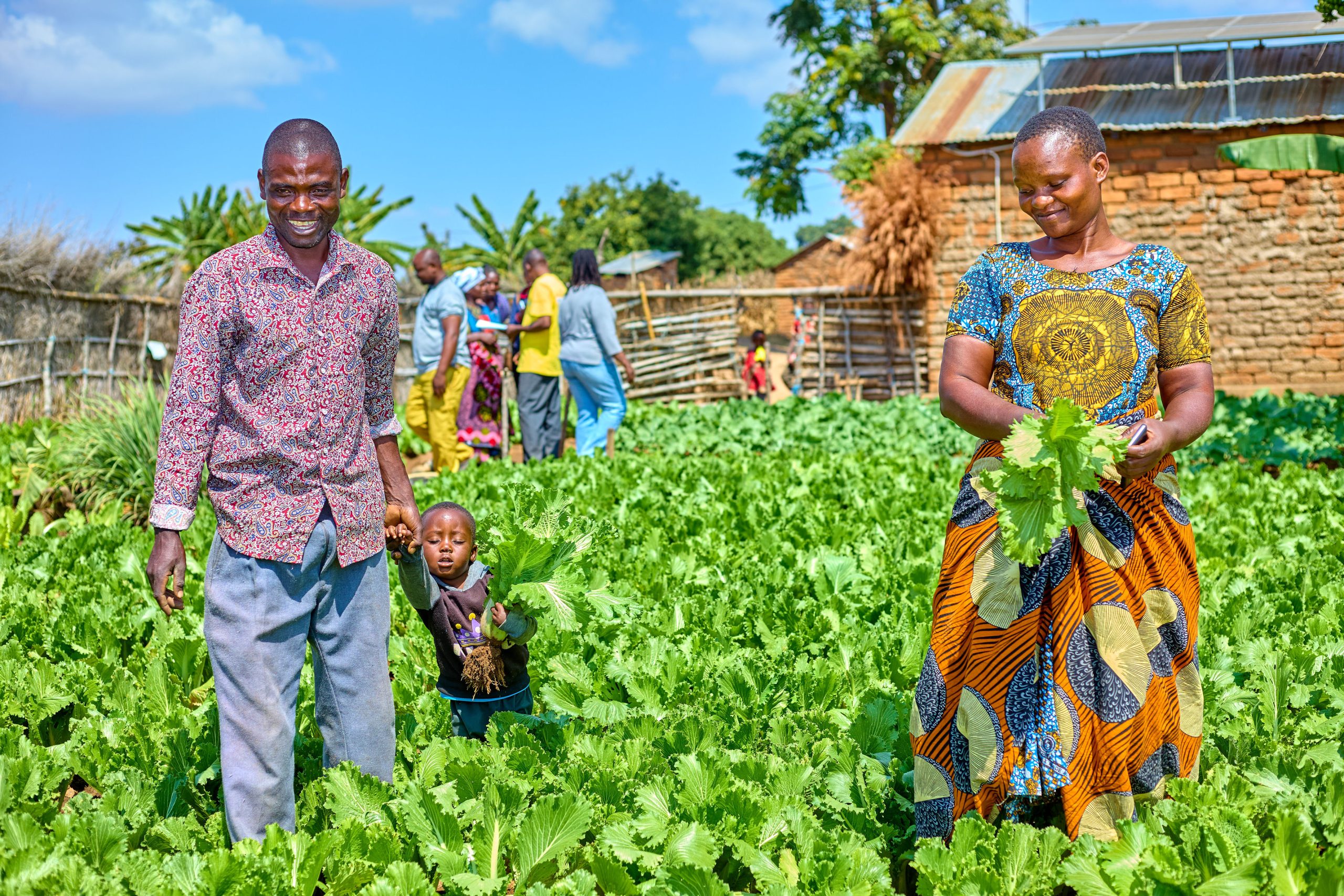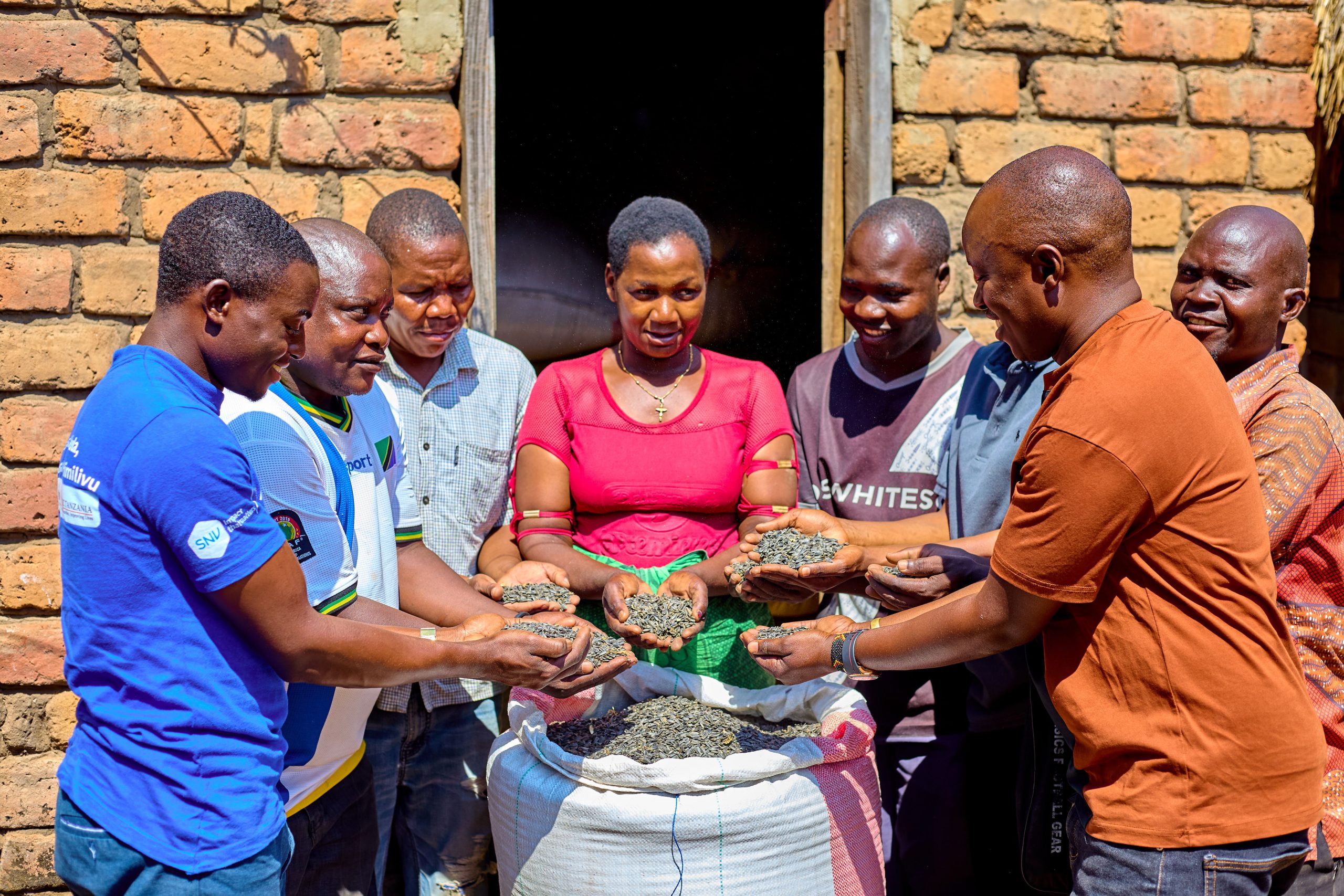
👉 The initiative, which has a commitment of 200 million Norwegian Krone (NOK), is being funded by the government of Norway through the Norwegian Agency for Development Cooperation (Norad)
DODOMA. OVER 57,000 households in five regions of Tanzania have so far been reached through a robust project which works to empower smallholder farmers on food security and climate-resilient agriculture.
Focusing on addressing the challenge of low productivity, climate change risks, insufficient knowledge on nutrition, and household gender dynamics, the five-year project (2024-2028), dubbed ‘NOURISH Tanzania’ is a brainchild of the SNV Netherlands Development Organisation and Farm Africa .
The initiative, which has a commitment of 200 million Norwegian Krone (NOK), is being funded by the government of Norway through the Norwegian Agency for Development Cooperation (Norad).
In an exclusive interview with the publication in the sidelines of the ongoing agricultural annual festival, NaneNane, the NOURISH Deputy Team Leader, Mr William Mato, said the beneficiary regions include Dodoma, Singida, Manyara, Songwe and Rukwa.
“Despite producing a variety of food, the regions under the implementation of the project are prone to varying levels of periodic food insecurity and malnutrition, with climate change increasingly impacting smallholder farmers,” he said.
Out of the households reached so far, he said 26,500 households have been trained on climate smart agriculture, 10,500 households empowered on agroforestry practices, and almost 11, 000 households imparted with recommended post-harvest management knowledge to reduce crop losses.

He added that at least 7,000 households which have pregnant and lactating women have received key knowledge on essential nutrition behaviour to improve household and child nutrition and food security.
To diversify diets and tackle malnutrition, NOURISH has worked to establish 2,500 kitchen gardens at a household level.
According to Mr Mato, “The NOURISH project works to curtail the barriers to smallholder farmer’s food and nutrition security through three interconnected outcome pathways“.
He detailed that the first pathway works to increase crop production and productivity through imparting smallholder farmers with climate-smart and nutrition-sensitive agricultural knowledge and skills, as well as access to inputs and finance, the target being to reach out to at least 168,000 smallholder farmer households.
In its second pathway, the NOURISH project works to attain an increased and diversified supply of nutritious food to local markets through strengthening the capacities of MSMEs, fostering collaborations and linkages among market actors, and promoting digital solutions.
In the project’s pathway, Mr Mato unveiled the focus on improving household gender dynamics and decision making to improve utilisation of household diets and provide nutritious food through adopting nutritious diets and improving gender equality for household decision making.
“In this area, we are working on a special behaviour change campaign around consumption of nutritious foods and gender dynamics at the household level in collaborations with the community health workers (CHW), to ensure children under two, pregnant women, and lactating mothers are consuming nutritious food,” he noted.
The NOURISH Deputy Team Leader appreciated the collaboration and support the government has been offering towards the implementation of the initiative, enough to enable it to work with a total of 109 Ward Agricultural Extension Officers (WAEOs) and 469 Community Health Workers (CHWs).
“Thanks to government authorities in the five target regions, we have strong collaboration and the technical support from TARI, the Ministry of Agriculture, the Ministry of Health and Local Government Authorities”, he noted.

The project, through its involvement with local partners, RECODA and MIICO, has conducted training towards the lead farmers, village and ward agricultural extension officers (VAEOs/WAEOs), covering key topics such as good agronomic practices (GAP), climate smart agriculture (CSA), soil health management, post-harvest handling, demo-plot establishment and kitchen garden establishment.
“A total of 1,477 demo plots have been established in the five regions under the project to practically instil farmers with the recommended agronomic practices for improving their farming productivity,” he stated.
In execution of the project, SNV works in partnership with like-minded organisations, including Farm Africa, RECODA, MIICO and T-MARC.
The private sector partnership has been key to the success of the NOURISH project to date and will be central to ensuring sustainability of the practices and relationship developed between the firms, MSME’s and smallholder farmers in ensuring access to services, inputs and markets.
Moving forward, SNV has engaged two digital platforms, Mazao Hub and Kilimo Maendeleo, which will enhance farmers’ access to services through their service centres and mobile application offering tailored extension advice, soil testing, market and weather information, market intelligence and supporting linkages between farmers and service providers.
Additionally, collaborations have been established with both the government via district councils and the private sector to increase awareness and utilisation of soil health testing services, both at the individual farmer level and at the village level for blanket soil amendment recommendations.
This will ensure data-driven efficiency in soil nutrition and fertiliser use management at scale, improving productivity, sustainability and environmental outcomes.
Implementation of the five- year project, reflects key government frameworks and policies, including the National Five- Year Development Plan, FYDP, III, (2021/22-2025/26), the Agriculture Sector Development Programme Phase II (ASDP II, 2018/18-2027/28), the National Climate Response Strategy (2022-2026), the Nationally Determined Contribution (2021), and the Nutrition-Sensitive Agriculture Action Plan (2022/2022-2025/26).










